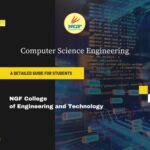Every year, countless students advance out from various Engineering colleges in India. If compared the number of students graduating from these colleges in India is much more than in China and USA, yet only 30% ( Ref: Wise Step Article) among them fits into the Industrial demand and the rest either remains unemployed or places them into jobs outside their field.
Here we have listed out a few of the major expectations of the Industry from engineer graduates.
- Firstly: The reason for such unemployment or underemployment!
Centre of Learning must build relevantly skilled manpower to fuel the growth of the IT and Management Sector. It must not only emphasis beyond the demarcations of the academic curriculum but also students must be given opportunities on Sandwich Courses which eventually will prepare them to meet the asperity of the present competitive world.
The concept of “CHANGE IS CONSTANT” must not only be believed but thoroughly practiced and tune the students according to the changes in Marketing Dynamics with respect to:
- Globalization Changes
- Demographic Changes and
- Adoption of Industrial Technologies
- Secondly: The Industry Expectations from the Graduates!
- Better Communication Skills: An Engineer must possess good communication skills if he expects to be hired into a good firm or organization. All complicated theories and laws are of no use if the candidate cannot communicate his thoughts in proper words.
- Knowledge beyond Textbooks: Very Often firms looks for individuals who can look beyond textbooks and think brightly. You need to be logical and think intellectually. To be an ideal aspirant for global firms, you should think like an INVENTOR.
- Positive Approach: The job of an Engineer is not simple. It is a path of many challenges and brings out the solution to the same and makes them work. A positive approach is thus a must in the career. In the core Engineering field like Electrical, Chemical, and Mechanical, sometimes field work becomes a salient part. Therefore, strong willpower and a positive approach is a must.
- Ability to Multitask: While the focus is an important condition in the Engineering career, there is something more important than the focus on the engineering career. It is the ability to multitask. An engineer may have to assume several responsibilities at the same time. This may not be possible for an individual whose complete focus is into a single thing and this is where the factor of multitasking becomes extremely crucial.
- Thirdly: Factors preventing them to get the right job!
- Ability to Lead: While there are many engineering graduates who score well in their papers, there are very few who are true leaders. Most of the Engineers today just follow the procedure shown by great minds of the past. If you wish to be hired by one of the leading companies, you must acquire the ability to lead.
- Update with Latest Technologies: The greatest risk of being in the field of technology existing now can become obsolete someday. You must be prepared to enhance your skills to match the latest in technology.
- Willingness to Travel: As Engineers escalate the success ladder; the expectations from an engineer seem to increase too. An engineer who is at a senior position in his field may be expected to travel places and meet senior level particular in different countries. They may be expected to share knowledge, ideologies and give presentations in most manners.
- Knowledge of Foreign Language: Knowledge of Foreign Languages is always an added plus in the engineering field. If you know languages like French, German, Spanish, Italian and Swedish languages, they can help you deal with a senior level administrator in International Projects. It also helps in establish your profile.
- An MBA Degree: An Engineer with an MBA degree is in great demand because it is a rare solution. The firms look for engineers with MBA degree to take up directorial positions in technology companies and firms. An MBA degree helps to furnish your management skills and make you a true director.
- Fourth: Skills of Future (SOF) and Related Jobs!
(ref: https://news.darden.virginia.edu) the 10 Critical Job skills of the future.
-Complex Problem Solving – Creativity- People Management- Emotional Intelligence- Judgement and decision-making- Service Orientation- Coordinating with others.











